Sir, – Can anyone tell me how our car-hating councillors get to ‘work’? Do they go by public transport, active transport or walk as they seem to want the rest of the workforce to do?
They need not try to fob us off with the old chestnut that they are too busy to wait for a bus, we are all busy people.
They also need to realise the time it would take many of us to get to hospital appointments if we didn’t use the car.
We live in Danestone and used to have the choice from three bus services. We now only have one, a 15 minute service – if it turns up.
Well, do they take their own advice? I – and many others I suspect – would be very interested to find out.
RE.
‘Road closed’ signs will save taxpayers’ money in Inverness
Sir, – Your front page of the Highlands and Islands edition (March 15) carried an artist’s impression of the proposed pedestrian friendly Academy Street with a few representative people, the obligatory dog on a lead, a taxi and a cyclist.
This was bannered as the “Rebirth of City Centre”.
Really? No pedestrians lugging suitcases from the railway station or the bus station to a hotel with no parking facilities.
In the real world it would have been raining and windy and a taxi not found as the existing ranks have been relocated to side streets some considerable distance away.
The primary cause of this exercise is reported to be the reduction of pollution from vehicles. That is easily achieved without resorting to expensive fancy pavements with planters outside the empty “For Lease” shops.
All you need are two “road closed” signs scrounged from the Highland Council roads depot – one at each end of Academy Street – and a few cones.
Plenty of these can in fact be found which the roads depot have lost or abandoned, so a simple environmentally friendly exercise has immediately sorted the traffic pollution and saved the council vast sums of money.
As a non-resident of the city of Inverness who recently got his Highland Council tax demand and a tax statement from HMRC showing the tax to be deducted from my state pension, I consider it of no consequence whether this pie in the sky project is funded by the council or HM Government – Scottish or otherwise – as the costs are borne by the taxpayer one way or the other.
The much-repeated phrases regarding the rebirth, rejuvenation, repopulation of city centres relates to the myth that people actually have a desire to live in city centres. I have written at length before on this very topic, so I will just point out this was the case some 60 years ago as the majority of the population were not car owners.
They lived in towns, in close proximity to shops, shopped daily as they had to, having no refrigerators and small larders and basically lived hand to mouth. Fast forward to the 21st Century and now we have a population who are living in much-improved housing, are car owners (not always by choice), shop probably once a week and can drive to out-of-town retail parks where they take a week or more’s shopping home, having parked close to the shops.
We have evolved into a population that needs to have car parking spaces, three per family in many cases, which makes city centre dwelling impractical and therefore has removed the requirement for lots of “little” shops serving “local” families.
Inverness already has a “city centre”. At the east end of Academy Street is a two-storey mall (incidentally with vacant shops) and close to that is the pedestrianised High Street.
All city centres across the UK are suffering from the retail park option. Widening pavements and putting seating and planters will prove to be yet more money wasted.
How many actually have a need or desire to do anything at all in Academy Street when it comes to the crunch?
As a reasonably frequent visitor to Inverness I don’t think I have actually driven down Academy Street since before the 2020 Covid lockdown.
Alastair Armitstead, Achiltibuie.
Scots must leave right-wing union
Sir, – I must congratulate Dick Winchester for his excellent letter in The Press and Journal (March 14).
Having said that, however, he must realise that those of us wishing independence will never persuade Ian Lakin and his fellow right-wing zealots that Scotland will be far better off out of the United Kingdom and back into the European Union.
No, we must persuade those left-leaning waverers who are still being influenced by the “project fear” perpetuated by those same right wingers.
My hope is that after the next general election – when England yet again elects a far-right Tory government which Scotland again did not vote for and does not want – that Scottish Labour will finally realise that the way ahead for Scotland is self rule and embrace independence.
To paraphrase Robert Burns – “it’s comin’ yet for a’ that an’ a’ that”.
W A Ross, Aberdeen.
SNP governance clearly superior
Sir, – In The Press and Journal (Letters, March 15) both Walter Service and Mhairi Rennie take their regular pop at the SNP.
They may be unaware of the reality that in Scotland there is a higher ratio of doctors, nurses and policemen, per head of the population than in England.
In addition, for all its perceived failings in education, the SNP has led to more young people leaving with more and better qualifications.
I would, respectfully, put it to them that is because of better governance at Holyrood.
Ron Campbell, Aberdeen.
UK remains finest union in history
Sir, – Dick Winchester (Letters, March 14) manages to fill half a page about the joys of Scottish independence without addressing any of the several very large elephants in the room.
It is classic nationalist propaganda, a glossy one-sided story with no attempt at balance. Such arguments are disingenuous and dishonest.
They are issued to win over those who only have a superficial knowledge of the true situation.
For obvious reasons, Mr Winchester utterly fails to mention Scotland spent over 30% more last year than it raised in taxes, creating a deficit of £24 billion.
Add to that, Scotland’s share of the UK national debt – £240 billion – and you have an economic impasse.
No bank or monetary fund on the planet would lend to us, meaning a Scottish currency becomes an economic impossibility.
All that is before the situation worsens with the inevitable flight south, prior to independence, of capital and high technology companies.
Furthermore, public sector costs will have to more than double to cover everything currently undertaken on our behalf by the rest of the UK.
We would also have to fund an army, an air force and a navy, not to mention new embassies and consulates all over the world to be able to trade.
Mr Winchester cites Denmark as a shining example of what an independent Scotland could be. I don’t think people here would like paying 56% income tax, 25% VAT and 180% import duties on cars. Denmark also has poorer cancer care, education and atmospheric pollution records than the UK.
Finally he states: “Unionism is dead in the water and doesn’t work.”
He is of course utterly wrong. The UK is the most successful and productive union in the history of the world.
Dr Richard Marsh, Strathdon.
Where are missing ‘opportunities’?
Sir, – It took approximately 800 words for Dick Winchester’s “column” (Letters, March 14) to deliver his part-speculation/part-economic thesis which included “people looking north and seeing opportunities they are denied now”.
After almost 16 years of SNP government and Dick also still sees renewed EU membership with its massive fees and law demands as a “no brainer”.
Perhaps it escaped his attention that for most of the last 100 years the SNP and fellow travellers have been hurling blame for every mishap and blunder they have fallen victim to at Westminster’s door and blamed the UK union.
There has been virtually a one-sided verbal cold war going on between Scotland and England to whom we send 60% of our Scottish exports.
So what and where do you find all these “opportunities” in Scotland? Peterhead lost General Motors, Cleveland Twist Drill and Nestle, we have queues for medical attention and an education system falling down on the job.
This is Scotland, where transport costs for raw material put firms at a very distinct disadvantage with their competitors.
Given the UK has begun deporting migrants landing on the beaches, it might seem a hard border with an “independent” Scotland would be inevitable. A soft, long border presents a much easier way of avoiding a one-way ticket to Rwanda and a backdoor to the UK.
Sam Coull, Boddam Peterhead.
Grievances must be discounted
Sir, – Dick Winchester (Letters, March 14) appears to have been somewhat over-stimulated by the length of his response to Ian Lakin’s letter.
The usual emotive SNP grievance chestnuts need to be discounted.
The United Kingdom’s Brexit vote was narrowly won by the leavers.
This was a collective vote of all the UK nations. I voted remain but unfortunately lost the vote.
It should be noted Scotland did not have a separate national membership of the EU so was not “dragged out”.
It was in as part of the UK. What was very evident was the EU rather overplayed their hand in making the changeover much harder than it should have been, most notably in Northern Ireland.
Currently, under the leadership of Rishi Sunak, a more normal interplay between the EU and the UK is evident and hopefully this will continue and improve.
It is likely an independent Scotland attempting to join either the EU or EFTA will not be totally straightforward or immediate as Scotland’s inability to “balance its own budget” casts serious doubt on whether Scotland would be accepted.
The question of currency also remains unanswered. It should also be appreciated the impact of Covid on Scotland’s budget has been very significant.
This has been totally ignored by Nicola Sturgeon. She has been completely out of her depth with economics and has chosen the easy option of running away from the problem, leaving the SNP totally in the lurch.
This uncertainty has resulted in a significant decline in public support for independence and perhaps more significantly, paid membership of the SNP has also significantly declined.
From a post-Brexit peak of about 125,000 in 2019 only about 78,000 members have requested a vote. It is anticipated that only about 54,600 will vote. Is this really representative of Scottish democracy?
David Philip, Newburgh.
Heart treatment was first class
Sir, – Last weekend I had to phone 999 for chest pain. The care from that phone call right through to getting a stent fitted and discharged within two days was absolutely first class and I can’t praise all staff highly enough.
From the bottom of my heart (excuse the pun) a huge thank you.
Violet Stephen, Lumphanan.
Music carries me back in time
Sir, – What a delight to attend Saturday afternoon’s ensemble Marvel of Peru’s Birds And Blossoms concert of Baroque music in Inverness Cathedral.
We are so privileged to have such incredible local talent, joined on this occasion by guest soprano Aileen Cuthbert.
The programme ranged from James Oswald’s charming Scottish pieces celebrating flowers such as Heartsease and Narcissus; to a wonderful imitation of birdsong, presenting the full range and tempo achievable on recorders, cello and spinet.
The climax was a fantastic rendition of part of Handel’s Samson where the dulcet, piercing tone of the boxwood D clarinet surpassed the sound of the more traditional trumpet.
Bravo, D James Ross and friends! You transported me over 300 years back in time and filled my heart with pleasure.
Carol Muirhead, Inverness.
Aviation fuel duty to tackle injustice
Sir, – Reading David Green’s column (‘We must lead in tackling climate injustice’, March 14) made me reflect on something I’ve aways been surprised about.
As far as I am aware, the only international agreement on fuel duty is that none should be applied to aviation fuel.
This must be a significant factor on the economics of the nice, but stupidly cheap, flight deals that can be on offer.
Especially when you compare those prices to those available for alternative ground transportation.
I’m surprised that we are now approaching COP28 and I’ve never been aware of any discussion on whether this anomaly should be addressed.
If you had a global agreement on charging duty on aviation fuel, it could be channelled direct to the international agencies tackling climate injustice – a potentially massive source of funding.
Irrespective of nationality, people who fly have to be considered first world citizens and have to recognise their obligation to tackle climate injustice.
Can anyone explain why this has never been raised, or considered?
John Morrison, Aberdeen.
SNP’s woes turn politics on its head
Sir, – The current disarray within the Scottish National Party could not have been envisaged when they were on the crest of their political wave with two words, ‘electoral landslide’, being used in the run-up to national and Scottish elections.
History has taught us that a husband-and-wife team in political power can be self-destructive, as appears to have been the case with First Minister Nicola Sturgeon and former chief executive of the SNP, Peter Murrell.
Between them they had complete control over the SNP within the chamber at Holyrood and the party’s membership.
Recent events have turned Scottish politics on its head with Murrell unexpectedly resigning his position as SNP chief executive.
Damage to the SNP’s image has now reached crisis level and it will take some considerable time, if ever, for the party to rise to its former glory days.
Nicola Sturgeon has already said on a number of occasions, “The buck stops with me”.
From that remark can one take it to mean she doesn’t blame Westminster for the current state of her party or has she forgotten to do so on this occasion?
The furore over current events will die down, but will some other issue damaging to the SNP surface?
This, we shall find out sooner, rather than later.
AF.
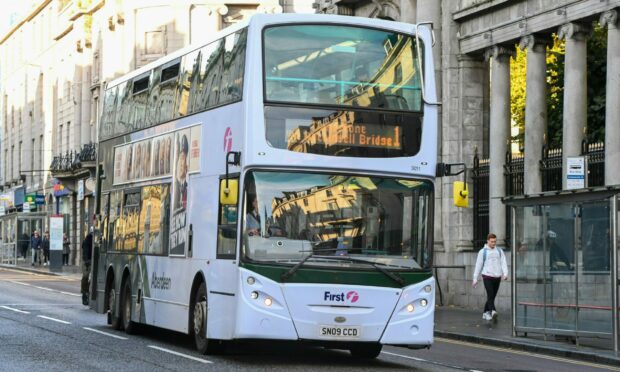
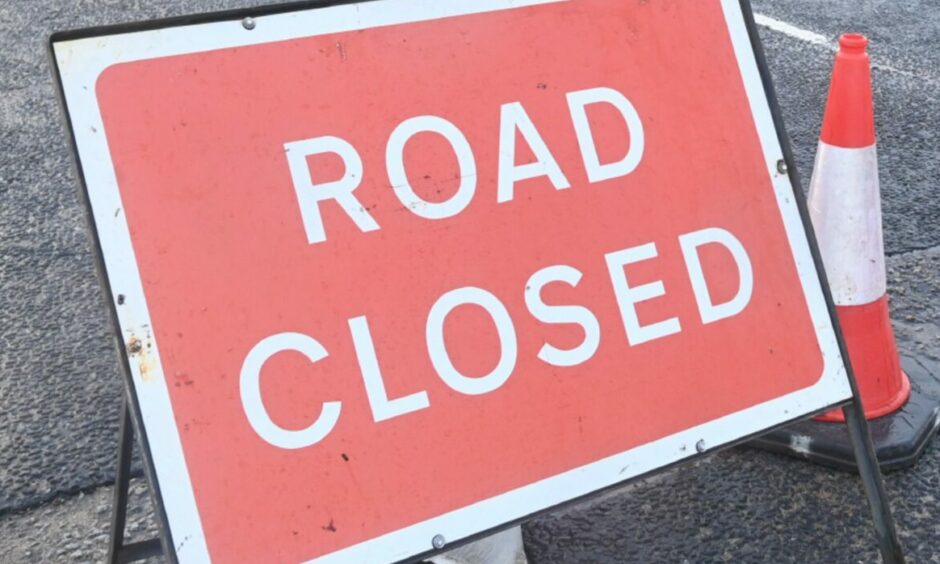
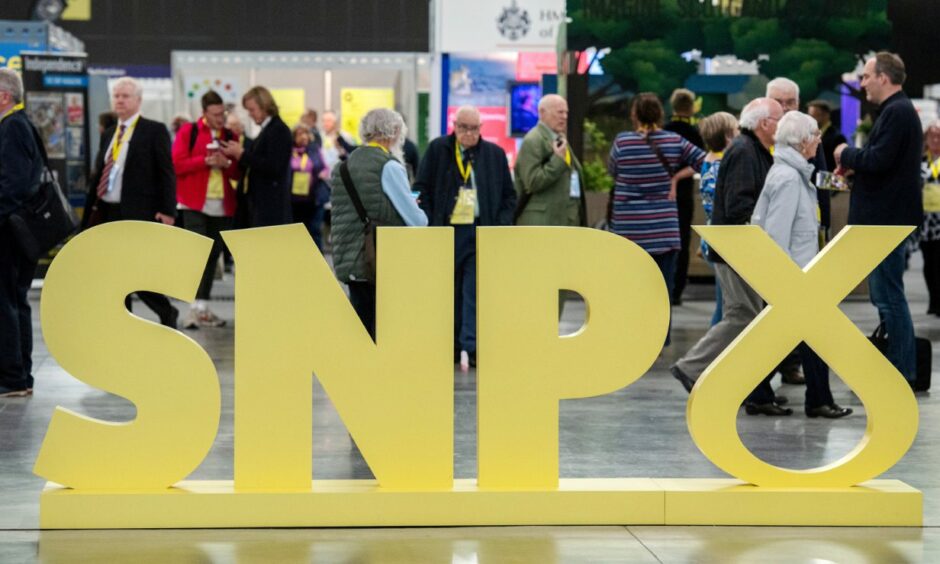
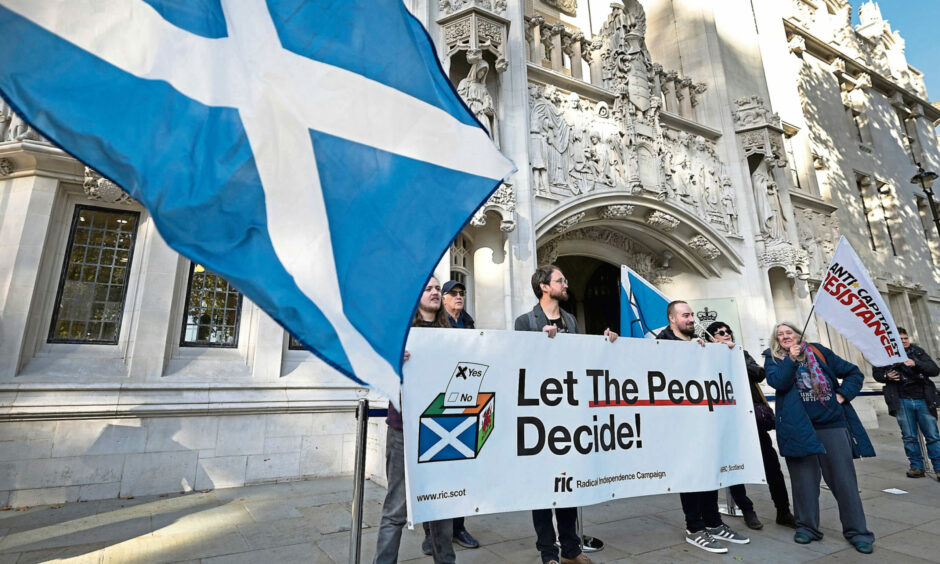

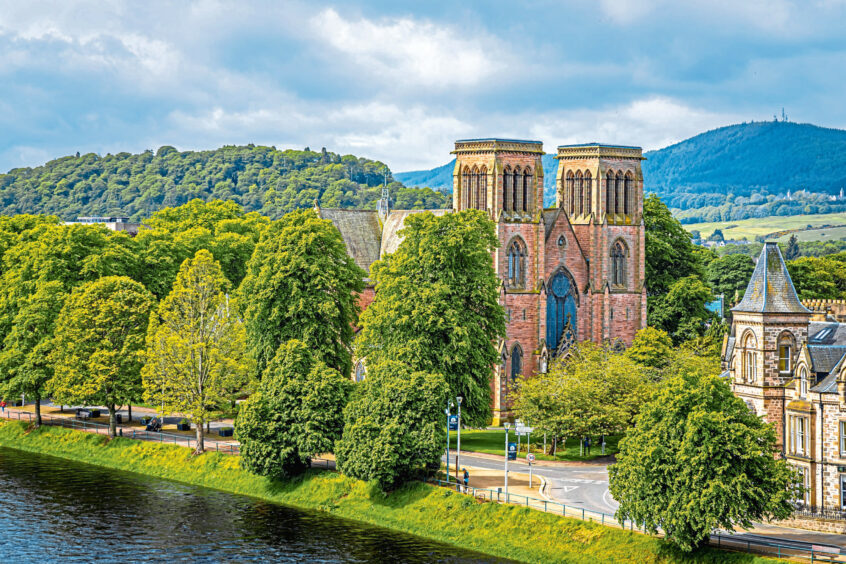

Conversation